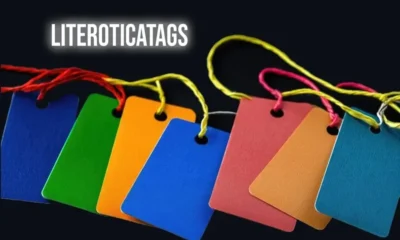BUSINESS
Drudgery 7 Little Words: The Puzzle and Its Charm

The world of word games has always captivated the human mind. From crossword puzzles to scrabble, word games have a unique charm. Among these, one puzzle stands out for its simplicity, challenge, and intellectual satisfaction: 7 Little Words. This puzzle, although relatively new compared to classics like the crossword, has quickly become a favorite pastime for many, offering a delightful blend of difficulty and entertainment. In this article, we will delve into the charm of this puzzle, exploring its appeal, how it works, the strategies to succeed in it, and why it can transform mundane moments into a fun-filled challenge.
What is 7 Little Words?
7 Little Words is a daily word puzzle game that consists of seven clues, each leading to a seven-letter word. Unlike traditional crossword puzzles, where the answers fit into a grid, 7 Little Words presents a list of letter groups or chunks that, when combined, form the correct answer to each clue. Each letter group is typically not a full word but part of one, and players must figure out which pieces of these chunks fit together to complete the puzzle. It’s as much about intuition and logic as it is about word knowledge.
This unique structure allows 7 Little Words to stand apart from its competitors. It isn’t just about finding the words hidden in a grid; it’s about breaking down a set of jumbled letters and making sense of them in the context of a given clue. The game’s simplicity and straightforward mechanics appeal to players of all ages. Yet, the challenge is real, as the clues vary in difficulty, and solving the puzzle often requires creative thinking.
The Allure of Simplicity and Challenge
One of the key reasons why 7 Little Words is so popular is its perfect balance between simplicity and challenge. On the surface, it seems deceptively easy. The game offers players seven clues with seven corresponding words to guess. The letter chunks are given, and the player must arrange them into the correct words. The puzzle is presented in a format that is easy to understand, even for someone who has never played before.
However, as players progress, they quickly realize that while the mechanics are simple, the puzzles themselves can become surprisingly tricky. This dual nature—simple to understand but challenging to solve—makes the puzzle incredibly addictive. It’s a game that players can jump into at any time, yet it offers enough challenge to keep them coming back.
This balance of simplicity and difficulty is especially important in the world of modern games. Today’s games are often overloaded with features and complicated mechanics, which can overwhelm the player. 7 Little Words strips all of this away, offering a back-to-basics puzzle experience that still manages to engage players deeply. Whether you have five minutes during your lunch break or an hour to unwind, 7 Little Words fits perfectly into your schedule, providing just the right amount of challenge to keep your brain engaged without feeling overly complex or stressful.
The Puzzle Mechanics: How It Works
As mentioned, the puzzle is based on seven clues. Each clue corresponds to a seven-letter word. The challenge lies in the fact that the clues themselves are not always direct, and the letter chunks provided are just pieces of the final answer.
The game offers a list of letter clusters for each word. For example, a word like “spring” might be broken down into chunks such as “sp,” “ri,” and “ng.” These chunks are not the words themselves but parts that players need to fit together to complete the word. This mechanic requires players to think about words in a non-linear fashion, breaking them down into their smallest parts and then piecing them back together.
The clues provided for each word can range from straightforward to highly cryptic. Some clues are quite direct and obvious, requiring little more than a simple recognition of the meaning. Other clues, however, are more abstract or require knowledge of various subjects, such as history, geography, or popular culture. This variety keeps the game fresh and offers a learning experience, as players are often introduced to new words and concepts they may not have encountered before.
In addition to these basic mechanics, players also have access to various hints that can help them when they get stuck. These hints can be in the form of revealing a letter in one of the words, providing the definition of a word, or even offering a complete solution. However, relying too heavily on these hints can detract from the sense of accomplishment players get from solving the puzzle on their own. Thus, the use of hints should be measured, as part of the challenge is learning how to work through a puzzle without needing outside assistance.
Why 7 Little Words is So Addictive
7 Little Words offers more than just an intellectual challenge—it provides a sense of achievement and satisfaction with every solved puzzle. The human brain craves challenges that are just difficult enough to feel rewarding once overcome, and this puzzle strikes that balance perfectly. Solving each puzzle feels like a small victory, and these incremental wins accumulate, creating a sense of progression that keeps players engaged.
Furthermore, the design of the game encourages players to return daily. It follows the model of daily puzzles, where a new set of seven words is available each day. This timed format creates a sense of urgency and anticipation, which can lead to a rewarding daily habit. The game also includes archives of past puzzles, which allows players to challenge themselves with previously solved puzzles, offering even more opportunities for practice and improvement.

Cognitive Benefits of 7 Little Words
While the game is fun and addictive, it also offers several cognitive benefits. First and foremost, it helps improve vocabulary. As players encounter new words through the clues and solutions, they expand their lexicon, often learning obscure terms they may not have encountered before. This is especially true for those clues that require knowledge of specialized subjects like science, history, or geography.
The puzzle also encourages critical thinking and problem-solving skills. Players are constantly required to break down words into smaller components and think about how to fit those components together. This mental process mirrors the cognitive exercises used to improve memory and analytical thinking in more formal settings, such as language learning or logic puzzles. Over time, players may notice improvements in their ability to think critically and solve problems in other areas of life.
Moreover, 7 Little Words engages working memory. Since the player must hold onto multiple pieces of information—the clue, the letter chunks, and the potential solutions—the game requires a level of concentration that exercises the brain. This can help improve memory retention and the ability to process information quickly.
Tips for Mastering 7 Little Words
While 7 Little Words is accessible to players of all skill levels, there are strategies that can help players solve puzzles more efficiently and enjoy the game even more. Here are a few tips to consider when tackling this challenging word puzzle:
- Start with the easy clues: In every puzzle, there will be clues that are easier to solve. These can provide a good starting point and help fill in some of the letter chunks for more difficult clues.
- Use the letter chunks strategically: Sometimes, the key to solving a word is recognizing that a given chunk may fit in multiple places. Look for patterns in the chunks and try them in different spots.
- Don’t hesitate to use hints: While solving puzzles independently is rewarding, using hints strategically can help you learn new words and avoid frustration. Just remember not to overuse them.
- Play regularly: Like any skill, word puzzles improve with practice. By playing regularly, you’ll become more adept at recognizing word patterns and solving puzzles faster.
The Social Aspect of 7 Little Words
In addition to the intellectual stimulation and cognitive benefits, 7 Little Words also offers a social aspect. Many players enjoy sharing their progress with friends or competing against others to see who can solve the puzzle faster. This competitive element adds an extra layer of engagement, motivating players to improve their skills and complete the puzzle with greater speed and efficiency.
Some versions of the game even allow you to challenge friends directly, which can make the puzzle-solving experience more social. By discussing strategies or helping each other out when stuck, players can enhance their enjoyment and bond over shared challenges.
Conclusion
7 Little Words is more than just a puzzle game. It’s a mental workout that offers entertainment, challenge, and cognitive benefits in equal measure. Its charm lies in its simplicity, its ability to engage the brain, and its knack for keeping players coming back for more. Whether you’re a seasoned word-game enthusiast or a casual player looking for a fun distraction, 7 Little Words offers an experience that is both satisfying and rewarding. The puzzle’s design encourages regular play, while its educational value ensures that you’ll learn something new every time you solve a puzzle.
In a world filled with digital distractions, 7 Little Words provides a refreshing break from the noise, offering a moment of mental clarity and intellectual satisfaction. So, the next time you find yourself with a few spare minutes, why not dive into the world of 7 Little Words and see how many puzzles you can solve? It’s a game that promises both entertainment and personal growth—one word at a time.
-

 Fashion9 months ago
Fashion9 months agoLiteroticaTags Explained: Find And Use The Top Tags For 2025
-

 BUSINESS10 months ago
BUSINESS10 months agoWhat is NippyDrive? A Complete Guide to Using NippyDrive
-

 Biography10 months ago
Biography10 months agoCoco Lovelock Bio, Age, Career, Net Worth, Height, Education, Boyfriend & More
-

 Biography10 months ago
Biography10 months agoWho Is Meow Miu? Get to Know the Latest Star in the Spotlight
-

 Fashion9 months ago
Fashion9 months agoWebfreen.com Fashion: Redefining Affordable Luxury
-

 Home Improvement10 months ago
Home Improvement10 months agoValvula Check 32mm Sodimac: Comprehensive Guide
-

 BUSINESS8 months ago
BUSINESS8 months ago9 Packaging Trends You Can’t Afford to Ignore in 2025
-

 TECHNOLOGY8 months ago
TECHNOLOGY8 months agoTransform Text into Stunning Videos: Free Online AI Text-to-Video Generator
